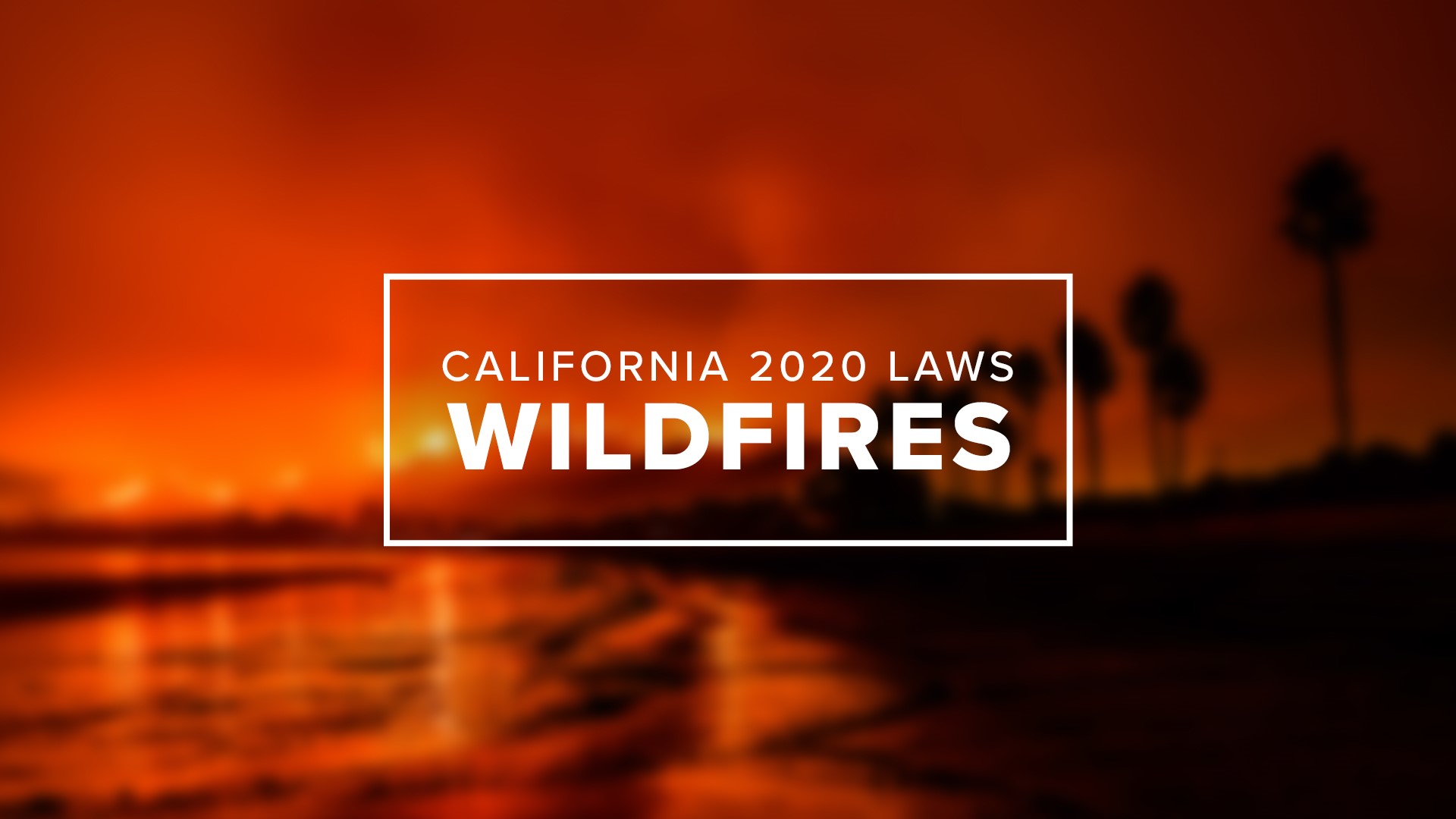SACRAMENTO, Calif. — With the new year comes hundreds of new laws in California.
As with any year in recent history, wildfires continue to be a significant concern for Californians. Here are four laws that go into effect on the first day of 2020 related to how the state will handle wildfires going forward:
Summary: This law would allow water suppliers to declare an emergency shortage without holding a public hearing, if there is a wildfire.
Current law: Before an emergency shortage can be declared during a wildfire, the water supplier has to hold a public hearing where consumers of the water supply have the opportunity to be heard and protest against the declaration.
What’s new: Recent fires have shown that time is of the essence in an emergency. Taking the time to gather enough people to have an emergency public meeting is not always realistic.
Why it’s needed: Senator Brian Dahle (R - Redding) said in the initial analysis of AB 1432, water suppliers know when they are supplying more water than usual to fight a fire and can asses the situation accordingly.
Summary: Homes built before Jan. 1, 2020, will need to be retrofitted to meet standards set by the State Fire Marshal, and other state agencies will need to aid in the creation of plans to prevent more homes from burning.
Current law: The State Fire Marshal is to create a retrofit plan for homeowners to do to homes cost-effectively by Jan. 31, 2020.
What’s new: This law will require the Office of Emergency Services [Cal OES] and the Department of Forestry and Fire Protection to create a plan for homeowners to retrofit homes in a cost-effective way to make them more flame retardant and less susceptible to wildfire hazards.
Meanwhile, homeowners must begin to retrofit their homes with the plan set by the State Fire Marshal if they want to sell their home in 2021.
Why it’s needed: The number of homes and the intensity of California wildfires is both growing. The Assembly noted in its analysis of the law that supporters of AB 38 said changes need to be made to prevent homes from burning.
Summary: This law creates one rule to be used in determining the value of property damage for total and partial losses in insurance policies.
Current law: Homeowners are paid the actual cash value of the home in the event of a total loss of their home from events such as a fire.
What’s new: This law instead requires the cost to repair, rebuild or replace the property and the physical depreciation based on the time of the event be the determinants on insurance payouts when there is a total or partial loss.
Why it’s needed: Assemblymember Tom Daly (D-Anaheim) stated in the analysis of AB 188 that homeowners under the current law are often paid the fair market value of their home, which may not accurately reflect the cost to rebuild their home.
Summary: Firefighting agencies across the state will be able to create a peer support and crisis referral program to help firefighters with any mental health issues that may arise.
Current law: Currently, there is no such program for supporting firefighters in the law.
What’s new: Firefighters can get trained to provide support to their peers in the form of listening to their peers and referring them to the appropriate service and help them get the help they need.
Why it’s needed: The California Professional Firefighters said the number of fires and violence that firefighters respond to have lead to increased stress on top of the regular stress of everyday life. The organization also said there is a need to destigmatize getting help, and this program could help.
READ ALSO:
FOR NEWS IN YOUR COMMUNITY,
DOWNLOAD THE ABC10 APP:
►Stay In the Know! Sign up now for ABC10's Daily Blend Newsletter



